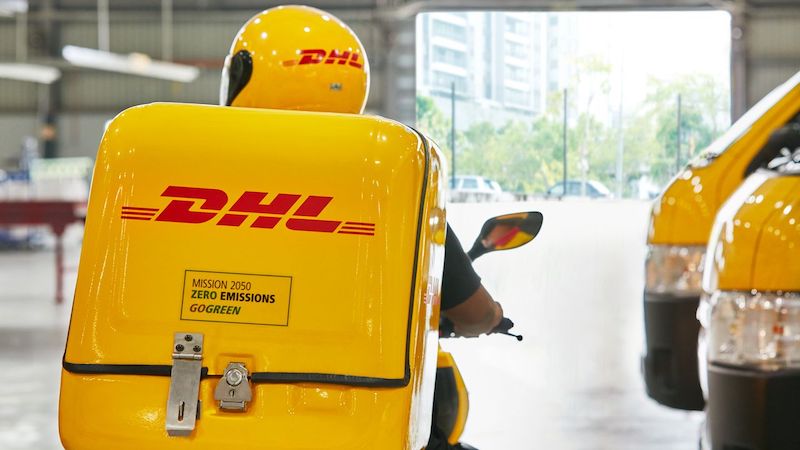Grow your business with the Discover newsletter
Logistics advice & insights straight to your inbox
Subscribe now
In today's fast-paced and interconnected world, businesses are no longer viewed solely through the lens of profit and loss. A paradigm shift has occurred, with consumers urging companies to embrace holistic sustainability. A concept that extends far beyond environmental concerns, holistic sustainability delves into a multidimensional approach that encompasses social responsibility, economic viability, transparency, and collaborative partnerships.
This article will delve into holistic sustainability in the corporate world, unravelling its multifaceted dimensions and the growing significance of ethical practices that underpin it. As modern businesses navigate an era marked by heightened environmental awareness, social responsibility, and ethical scrutiny, the need for a 360-degree approach to sustainability becomes increasingly paramount.
Increasingly, there is a growing awareness that sustainability isn't a one-dimensional concept, but one that intertwines social, environmental, and economic sustainability into a comprehensive tapestry. A holistic approach to sustainability acknowledges that these dimensions are not competing but complementary.
Businesses that adopt such an approach understand that ethical practices in one dimension can enhance their overall sustainability. As a result, these practices contribute to a better future for all stakeholders by fostering a positive workplace culture, reducing costs, and improving economic viability. In today's corporate landscape, ethical practices aren't just a choice; they are a strategic imperative.
Environmental stewardship lies at the heart of ethical business practices and plays an instrumental role in crafting a sustainable future. DHL Express exemplifies this commitment through various initiatives, leaving a green footprint on its journey towards holistic sustainability.
In essence, DHL Express's environmental stewardship initiatives encompass renewable energy, waste reduction, and sustainable sourcing. By embracing these initiatives, businesses can join DHL Express in creating a more sustainable world.
A truly ethical business isn't just environmentally conscious; it also fosters positive social impact through areas such as fair labour, community engagement, and diversity and inclusion.
In turn, sustainable practices, such as reducing carbon emissions through climate protection projects, align with broader social responsibility goals, creating a symbiotic relationship between responsible business conduct and environmental sustainability.
Businesses are starting to recognise that ethical practices are not only good for the planet and society but also for a company's bottom line. Here's how ethical practices can lead to cost savings, increased competitiveness, and enhanced brand reputation, ultimately paving the way for economic sustainability.
Ultimately, economic sustainability and viability are integral to sustainability efforts. Sustainable practices often lead to cost savings and revenue growth, which can be reinvested in further sustainability measures. This positive economic cycle allows companies to continuously innovate and expand their sustainability efforts, ultimately creating a self-reinforcing ecosystem where economic success fuels environmental and social responsibility.
Transparency and accountability form the bedrock of ethical business practices. In an era where information flows freely, businesses that operate transparently, revealing their actions, decisions, and the impact of their operations, inspire trust among stakeholders. Transparent practices not only build credibility but also demonstrate a commitment to ethical responsibility.
However, transparency alone is insufficient without accountability. It's the process of taking responsibility for actions, both positive and negative, that truly solidifies trust. When businesses hold themselves accountable for their environmental, social, and economic impacts, they demonstrate integrity and a genuine dedication to sustainable practices.
Transparency and accountability are integral to sustainability efforts as they ensure that businesses uphold their commitments to ethical and sustainable practices. This trust-building approach enhances the credibility of sustainability initiatives, encourages collaboration with stakeholders, and paves the way for collective efforts towards a more sustainable and responsible business landscape.
In the pursuit of holistic sustainability, forging partnerships with like-minded organisations holds immense potential. These collaborations amplify the impact of sustainable initiatives and promote a collective commitment to ethical practices. For instance, a deal has been agreed with bp and Neste to supply DHL Express with 800 million litres of Sustainable Aviation Fuel until 2026. This commitment not only reduces carbon emissions significantly but also aligns with DHL's ambitious goal to utilise 30% of Sustainable Aviation Fuel for all air transport by 2030.
Such partnerships extend the reach of sustainability efforts, fostering innovation, sharing resources, and collectively addressing global challenges related to climate change and environmental stewardship. The synergy of collaborative partnerships propels holistic sustainability to new heights, demonstrating the profound positive impact that can be achieved through shared responsibility.
Employees are pivotal in championing holistic ethical practices within an organisation. Initiating this journey can begin with several key steps:
By empowering employees and fostering a culture of sustainability, organisations can harness the collective efforts of their workforce to drive ethical and sustainable business practices, ensuring long-term viability and a positive impact on the environment and society.

To truly embrace holistic sustainability in your business, consider partnering with a logistics provider committed to sustainability. DHL Express Sri Lanka is dedicated to implementing sustainable shipping solutions, including electric vehicles and sustainable aviation fuels, to reduce carbon emissions and promote eco-friendly logistics. By working with DHL Express, your business can showcase its commitment to holistic sustainability, meet customer expectations, and contribute to global sustainability goals.
Open a business account with DHL Express today to learn more about our carbon-neutral shipping solutions.